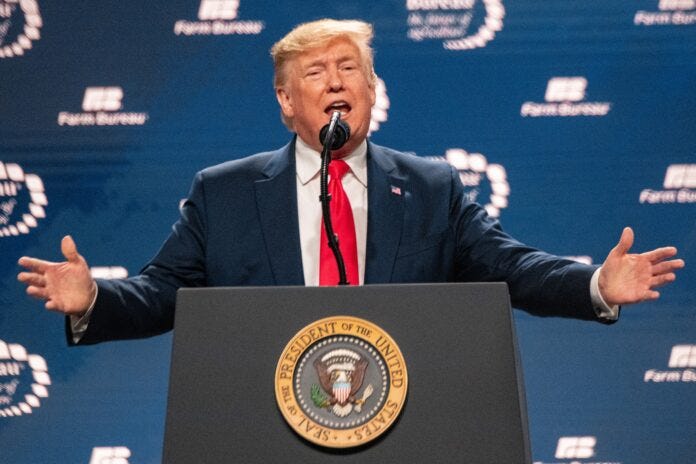The transatlantic alliance under strain
James Crouch looks at how the British public's view of the US under the Trump presidency has seriously shifted – and what it means for future relations
The British public’s confidence in the United States as a reliable ally has collapsed since Donald Trump took office. For the first time in Opinium’s polling, a significant proportion of the British public now see the US not just as a less trustworthy partner, but as a potential threat. This sharp and sudden shift marks a dramatic reversal in what has long been an essential international relationship and raises serious questions about the future of the transatlantic alliance.
Just over a third of the public (35%) now say the US is an ally, a stark fall from 56% in November (immediately after Donald Trump’s re-election) and a staggering drop from 69% in April last year. Almost the same number (34%) now view the United States as a threat. This is not just a small shift; it’s a drastic turning point in public attitudes. For a country with whom we share language, history, military partnerships, and culture, the speed and scale of this change is remarkable. Looking at the data from Australia and France for context, the shift seems even more extraordinary.
This matters. Whatever the public mood, the UK remains highly dependent on the US for cooperation across a range of key areas, particularly intelligence and security. The United States is a cornerstone of NATO, a lead partner in the Five Eyes intelligence alliance, and of course British politician cannot help but refer to the “special relationship.” When public faith in that partner collapses, it leaves UK governments in a tight diplomatic bind: forced to maintain cooperation with an administration viewed by many voters as hostile or untrustworthy.
This challenge is especially acute for the current government. Among 2024 Labour voters, more now see the US as a threat (39%) than as an ally (33%). That leaves Keir Starmer navigating a relationship that is strategically vital, but politically toxic with parts of his own electorate – prompting calls to speed up efforts to reintegrate with our European allies.
Yet amid the pessimism, there are signs of resilience in the broader UK-US connection. When asked whether the UK has “much in common” with various countries, seven in ten (69%) still say yes to the United States. That figure has barely shifted since November (72%), suggesting that the British public still feels culturally close to Americans, even if they no longer trust the current US leadership.
This disconnect may be partly explained by how the British public view Donald Trump himself. Nearly half (48%) now believe that President Trump does not represent what most Americans think, up significantly from just 33% in January. The distinction is clear: Trump is the problem, not the American people.
Still, this apparent contradiction — distrusting Trump while feeling close to Americans — raises deeper questions. Is this just about one president, or is American protectionism and unpredictability here to stay? As Trump’s trade war continues, the United States’ allies would do well to examine the American political landscape closely to assess whether this approach to international relations might outlast the 2028 presidential election.
As originally published in Lansons-Opinium Political Capital.
Opinium Research carried out an online survey of 2,050 UK adults aged 18+ from 9th to 11th April 2025. Results have been weighted to be politically and nationally representative. These questions have been previously asked on two polls: 17th to 19th April 2024 and 13th to 15th November 2024.
See the original data here.





